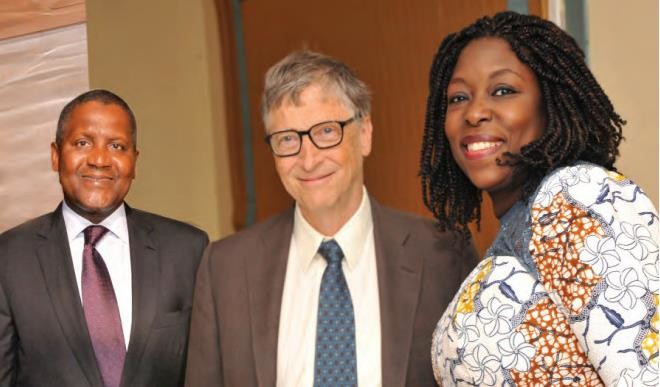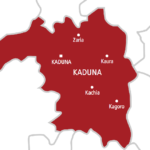
Nigeria, in all honesty, should ordinarily be described as a rich country, with its citizens living in opulence as a result of its immense mineral and human resources. Should, but in the real sense, the country is poor. Unemployment rate is high and the rate of poverty in most parts of the country is scary. Despite the richness in resources, Nigeria is home to the third largest number of chronically undernourished children globally, with about 2.5 million children under five years affected by severe acute malnutrition, according to the Federal Government of Nigeria. Speaking recently at the commemoration of the 2017 Nutrition Week in Abuja, the Minister of State, Ministry of Budget and National Planning, Mrs. Zainab Ahmed said, “If nothing is done, one in five, representing 500,000 children, will die annually (global nutrition report, NDHS 2013 report). Malnourished children tend to have lower Intelligent Quotient and impaired cognitive ability with resultant negative effects on their performance in school and productivity in later life.” In a sharp contrast to the Minister’s figure, the United Nations Children’s Fund (UNICEF), also at the programme, declared that over six million children in Nigeria under the age of five are stunted due to malnutrition. According to the global agency, about 60 per cent of the 22.2 million children in that age bracket in the country face risk of poor development due to lack of early childhood development support. The UNICEF Country Representative, Mallick F˪all, who said this, further explained, “Nigeria is putting its ˪children at risk of under-development, both physically and mentally, because critical national policies are not providing an adequate foundation for their growth.” The precarious malnutrition situation in Nigeria caught the world’s attention at a Global Nutrition Summit 2017, held recently in Milan, Italy. The case of Nigeria was speci¿ cally discussed and it became obvious that the future of the children, especially in the Northeast and Northwest, will be in jeopardy, if the trend is not quickly addressed. The United Nations Children’s Funds (UNICEF) had also recently said that no fewer than 11m children in Nigeria were suffering from acute malnutrition, with the Northeast and Northwest regions among the worst hit. The Chief of Field Of¿ ce, UNICEF Bauchi, Abdulai KaiKai, disclosed this while speaking during the À agoff of the Community Management of Acute Malnutrition (CMAN) in Bauchi State, being part of the programme to commemorate this year’s breastfeeding week. Kaikai said the level of exclusive breastfeeding in Nigeria was only 17 per cent, meaning that at least 5.4m children missed out on its benefits, thereby contributing to the country’s problem of chronic child malnutrition. With the way the number keeps growing, it is obvious that the efforts of the federal government on the problem have not achieved the desired level. Concerned with the plight of the children and the attendant effects on the future of the country, the President of Dangote Foundation, Aliko Dangote, at the Global Nutrition Summit saved the day by bringing smiles to the faces of both the international community and the Nigerian federal government by pledging a whopping $100m to tackle malnutrition in the worst-affected parts of Nigeria. The Global Nutrition Summit is the global forum of the United Nations Decade of Action on Nutrition (2016- 2026). This year’s edition was held in close partnership with a number of international stakeholders, including the UK’s Department for International Development, the World Health Organization, the Food and Agriculture Organization of the United Nations, the Bill & Melinda Gates Foundation and the International Coalition on Advocacy for Nutrition. The Summit was meant to principally accelerate the global response to malnutrition, an underlying cause of nearly half of all global child deaths. Full attention was, however, on the Aliko Dangote Foundation, which pledged to invest $100m over five years to tackle malnutrition in the worst-affected parts of Nigeria. The governments of Ethiopia, Ivory Coast, Burkina Faso and Zambia all made commitments to expand their nutrition programmes, and the Summit succeeded in galvanizing $3.4 billion, according to the organisers. Malnutrition affects every country in the world in various forms. However, Africa is particularly hard hit, and Nigeria is home to the highest numbers of malnourished children. Almost half of the one million children who die before the age of five every year in Nigeria die of malnutrition as the underlying cause. Without the proper nutrients during the first 1,000 days of life, starting from conception up to their second birthday, children are less likely to survive childhood diseases such as malaria and pneumonia, and are less likely to escape poverty as adults. They become physically and cognitively stunted, a fate that has befallen 11m of Nigeria’s children under five. Speaking at the Summit, the Aliko Dangote Foundation Managing Director and Chief Executive Officer, Zouera Youssoufou, said, “Nigeria’s high malnutrition rate is undermining progress towards improving child health and survival and putting the brakes on economic development. By investing in nutrition, we aim to directly improve the lives of Nigerian families and to empower our citizens to reach their full potential.” The Global Nutrition Report 2017 launched at the Summit showed that, in spite of progress, 155m children globally are still stunted and the world is off-track on meeting internationally agreed nutrition targets. Financing to tackle malnutrition has been alarmingly low. Donors spend about 0.5 per cent of overseas aid on nutrition, and countries allocate between one and two per cent of their health budgets to the issue. “The global malnutrition crisis endangers the physical and mental wellbeing of present and future generations,” said Kofi Annan, speaking at the Summit in his capacity as Chair of the Kofi Annan Foundation. “Progress in tackling both under-nutrition and obesity is possible with targeted commitments, like those made here today. We need further urgent investments so that people, communities and nations can reach their full potential,” he said. Through his Foundation, since 1993, Aliko Dangote has made signi¿ cant social investments in health, education, economic empowerment and disaster relief. He is now becoming the strongest voice for nutritional leadership nationally and on the continent of Africa. By making this unprecedented $100m commitment, the Aliko Dangote Foundation is on a mission to reduce the prevalence of under-nutrition by 60 per cent in the most needy areas of Nigeria, specifically the Northeast and Northwest, where malnutrition has affected millions of lives and crippled the local economy. The $100m commitment is huge, bearing in mind that the same Dangote, using his Dangote Foundation to partner with Bill and Melinda Gates Foundation, collaborated on and spent millions of dollars to contain the upsurge of polio in the country. It is also in the same spirit that the Dangote Foundation and GBCHealth have joined forces to forge a new model of partnership, the African Business Coalition on Health (GBCHealth) for healthcare in Africa. The Chairman of Dangote Foundation, Aliko Dangote, shared plans to build an African Business Coalition on Health (ABCHealth) during the Bloomberg Global Business Forum which took place alongside the United Nations General Assembly recently in New York. According to him, the African-led coalition of companies and philanthropists will seek to improve the health and wellbeing of Africans, both within the workplace and within the broader communities. He stated that the partnership would develop and deploy impactful health programmes across Africa, deepening knowledge, building evidence for future investment and strengthening coordination among African philanthropists, business leaders, companies and networks. Through his Foundation, Dangote has made an unprecedented grant and seed contribution to GBCHealth of $1.5m over three years as a call to action and a signal to the African business community of the importance of working together and investing in health. “The time is ripe for the private sector to proactively demonstrate its value in partnering to lead a new era in development,” said Dangote, adding, “The coalition can provide much needed guidance to ensure activities and investments are driving results in areas where the private sector can have real impact, focusing on holistic and integrated solutions that cross borders. We look forward to working with other business leaders as partners in development to drive this impact.” The co-chair of GBCHealth’s Board of Directors, Aigboje Aig-Imoukhuede said, “This coalition brings together two heavyweights in the health and development arena. Together we have an opportunity to demonstrate how investing in health and creating healthier populations can help business maximise shareholder value, accelerate economic growth and make entry into new markets more feasible. “It’s an ambitious and bold project,” said Dangote, “but the only way to move Africa forward is to take bold moves, to think big, dream big and do big things together – breaking down silos, working across borders and working across sectors, with government and with each other.”




